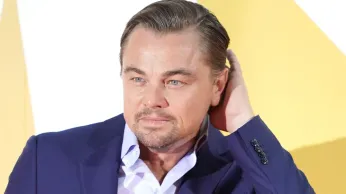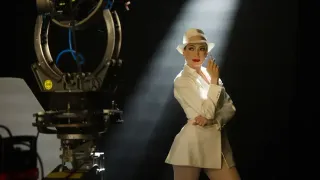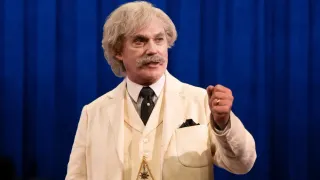
Aug 15
Leonardo DiCaprio Calls Passing on ‘Boogie Nights’ His Biggest Career Regret
READ TIME: 2 MIN.
Oscar-winning actor Leonardo DiCaprio, celebrated for his performances in films like ‘Titanic,’ ‘Inception,’ and ‘The Revenant,’ has opened up about his biggest career regret: declining the lead role in the 1997 film ‘Boogie Nights’. In a candid interview with director Paul Thomas Anderson, published by Esquire, DiCaprio described the film as “a profound movie of my generation,” and admitted, “I’ll say it even though you’re here: my biggest regret is not doing ‘Boogie Nights’”.
‘Boogie Nights’ tells the story of Dirk Diggler, a young nightclub dishwasher who becomes a prominent adult film actor in 1970s Los Angeles. The film, known for its unflinching exploration of sexuality, chosen family, and the complexities of self-discovery, has long been celebrated for its nuanced depiction of both queer and straight characters in a subculture often sidelined by mainstream media.
Originally, Anderson envisioned DiCaprio for the role after seeing his work in ‘The Basketball Diaries.’ However, DiCaprio had already committed to James Cameron’s ‘Titanic,’ a film that would catapult him to global superstardom. Instead, DiCaprio recommended Mark Wahlberg, his co-star from ‘The Basketball Diaries,’ who ultimately took on the role, earning critical acclaim.
While ‘Boogie Nights’ is not explicitly a queer film, its portrayal of found family, sexual liberation, and non-traditional identities resonated deeply with LGBTQ+ audiences. The film’s ensemble cast included characters whose sexualities and gender expressions challenged the norms of late-1990s Hollywood, and its frankness about sex work and intimacy remains rare in mainstream cinema.
The movie’s legacy is further enriched by its empathetic depiction of characters like Amber Waves and Rollergirl—figures whose struggles with acceptance, addiction, and chosen family echo the lived experiences of many in the LGBTQ+ community. For trans and queer audiences especially, the film’s refusal to moralize or stereotype its characters was groundbreaking, helping to shift public perceptions about who could be a protagonist in American cinema.
In his conversation with Anderson, DiCaprio expressed genuine admiration for the film’s artistry and significance, stating, “When I finally got to see that movie, I just thought it was a masterpiece. It’s ironic that you’re the person asking that question, but it’s true”. His regret highlights a broader industry reckoning with roles that challenge heteronormativity and open doors for marginalized voices—not just in casting, but in storytelling itself.
The enduring relevance of ‘Boogie Nights’ for LGBTQ+ communities underscores the importance of representation, both in front of and behind the camera. As Hollywood continues to evolve, DiCaprio’s reflection serves as a reminder that bold, inclusive storytelling is not only artistically rewarding but also culturally transformative.
DiCaprio’s openness about his regrets invites a larger conversation about the opportunities actors have—or miss—to shape narratives that reflect the diversity of lived experience. As Hollywood grapples with its legacy of exclusion, stories like ‘Boogie Nights’ stand as milestones in the ongoing pursuit of authentic LGBTQ+ representation.
For many in the community, the film remains a touchstone: a reminder that complex, flawed, and fully realized queer and trans characters belong at the heart of cinema. DiCaprio’s candid admission may inspire a new generation of actors and creators to seek out roles that not only challenge them artistically but also help advance the cause of representation and inclusion for all.






